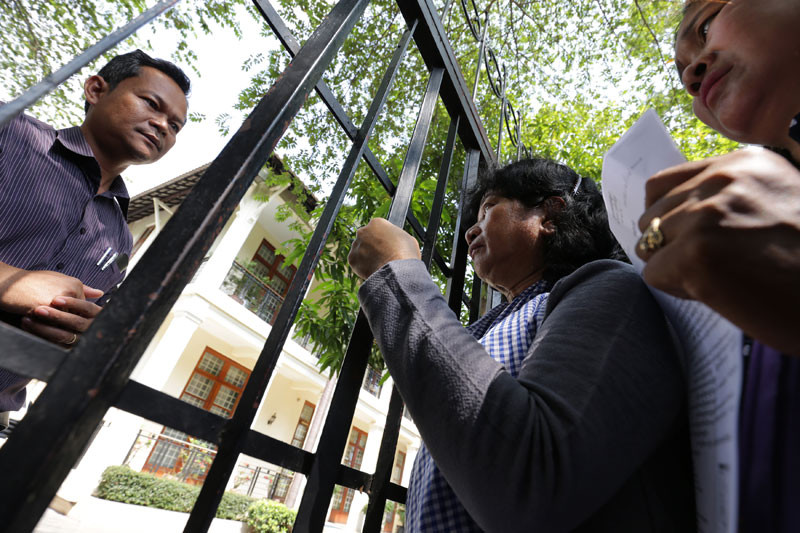Boeng Kak supporters on Tuesday said they were dismayed at the World Bank’s announcement of a new $100 million loan to the Cambodian government amid ongoing harassment and jailings of land rights activists.
The loan—announced on Friday and intended to improve rural roads and secondary education—is the second round of funding the lending agency has disbursed to Cambodia since lifting a five-year moratorium in May last year. The World Bank had enacted the funding freeze after an internal investigation it released in 2011 found the bank was partially culpable in the eviction of about 3,000 families from the Boeng Kak lake neighborhood in Phnom Penh.

On Tuesday, several land rights advocates disagreed over whether the government’s efforts to provide compensation and housing to the evicted families justified the bank’s new loan, or whether recent harassment and imprisonment of prominent land rights activists, including Boeng Kak activist Tep Vanny, should have made the World Bank rethink its investment.
“If the World Bank funds another project, it will be its second mistake,” said activist Sung Sreyleap, a Boeng Kak evictee. “They should not fund Cambodia’s government when we see Ms. Tep Vanny is still in prison.”
Chan Puthisak, another activist, said World Bank funds were “partly bad for the country,” especially with Ms. Vanny still in prison. “If they fund Cambodia, they should have a condition with the government for transparency on human rights and land issues,” he said.
A World Bank spokesman did not respond to a request for comment.
Following the bank’s internal report on the lake project, a 2013 U.N. report by the special rapporteur on adequate housing referenced the evictions to urge the World Bank to consider human rights more broadly as part of its loan and aid packages.
“The special rapporteur considers this case [Boeng Kak] a clear illustration of the urgent need for the bank to adopt a human rights approach to its land sector development operations,” the report says.
At the time of the bank’s original resumption of funding to Cambodia in May, the organization released a statement that appeared to suggest the Boeng Kak issue had been largely resolved, saying the “large majority of eligible families” remaining in the Boeng Kak lake area had negotiated and received land titles from the city or chosen alternative compensation.
Since then, however, relations between the government and several prominent Boeng Kak evictees have deteriorated. In September, four Boeng Kak activists were convicted and sentenced to six months in prison on charges related to a 2011 protest, and in February, prominent Boeng Kak activist Tep Vanny was sentenced to 30 months in prison for a separate protest in 2013.
“The problem is not fully solved,” said Soeung Saran, advocacy program manager at land rights NGO Sahmakum
Teang Tnaut. “The World Bank…should encourage the Cambodian government to release land activists, especially Boeng Kak activist Ms. Tep Vanny.”
Mr. Saran said the issues of compensation and the imprisonment of activists were part of the same problem.
The activists “just wanted to protect their land,” he said. “I think it’s not a separate issue. They are related.”
Sia Phearum, secretariat-director of the NGO Housing Rights Task Force, however, welcomed the bank’s loan, saying the money could help reduce poverty in Cambodia. He said the new loan would allow the World Bank to advocate on behalf of the 10 remaining Boeng Kak families that have not yet received compensation.
“The bank can give encouragement to the government to complete these,” Mr. Phearum said. “With $100 million, I think it is not a hard job.”